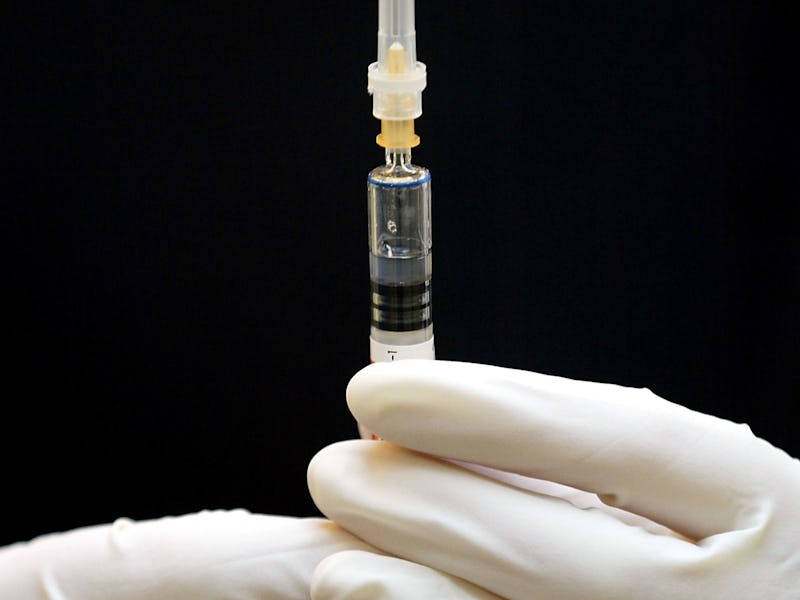U.S. Expects to Test a Zika Virus Vaccine by September
If it works, the vaccine won't be distributed until 2018. But at least it's a start.

The United States could test a vaccine for the Zika virus on humans as early as September if health officials meet their clinical research goals.
“[It] is not firm, but yes, Dr. Anthony Fauci, director of the National Institute of Allergy and Infectious Diseases (NIAID), part of the National Institutes of Health, expects we should be able to begin Phase 1 trials on a DNA-based vaccine against Zika virus by September,” an NIH press official told Inverse on Friday.
Right now, Latin America and the Caribbean have been the hardest hit by the virus, but as springtime temperatures heat up the southern United States, Zika-bearing mosquitos could start making their way north. We don’t know for sure whether that’s going to happen, but expediting the approval of a vaccine is one of the best ways we can prepare.
It’s likely the options for the new Zika vaccine will be discussed at the Zika Action Plan Summit taking place in Atlanta on April 1, where U.S. researchers and public health officials will draw up their game plan for the coming months. The director of the U.S. Centers for Disease Control and Prevention, which has been working together with the Puerto Rican government to curb Zika’s spread, just announced plans to travel to affected areas to assess the steps that have already been taken.
The NIAID is working on several approaches to creating a vaccine. The most promising strategy, which has already been shown to induce an immune response in a Phase 1 clinical trial, works by presenting Zika DNA to the body’s immune system so it can recognize the actual virus if it ever encounters it. Developing vaccines can take decades, but the scientists behind this new DNA vaccine used their previous research on the West Nile virus, which is spread by the same mosquito as Zika, as a springboard for their new work.
Other approaches, one involving a live but weakened version of the virus and another that uses a genetically engineered version of a cattle-specific virus, are also being investigated.
But developing, testing, and distributing a vaccine are three disparate tasks with very different — and drawn-out — timelines. The testing phase is what NIAID is hoping to start in September with its Phase I trials. What’s ironic is that while we desperately hope Zika won’t spread to the U.S., clinical trials can’t take place unless there are Zika patients test. Take the recent tests of an Ebola vaccine as an example: The trials failed to reach completion because the epidemic had already run its course and the researchers ran out of participants to work with.
Indian researchers at the Hyderabad-based company Bharat Biotech also have a Zika vaccine in the works, though even that would be subject to rounds of lengthy testing before it could be used stateside.
Still, it’s better than nothing. We keep discovering new and increasingly shitty things about Zika — its link to microcephaly has already affected over 4,800 babies in Brazil alone, and it’s recently been found to be transmitted sexually — and today, two people paralyzed by the rare disorder Guillain-Barré Syndrome were found to have traces of the virus in their blood.
This article was originally published on